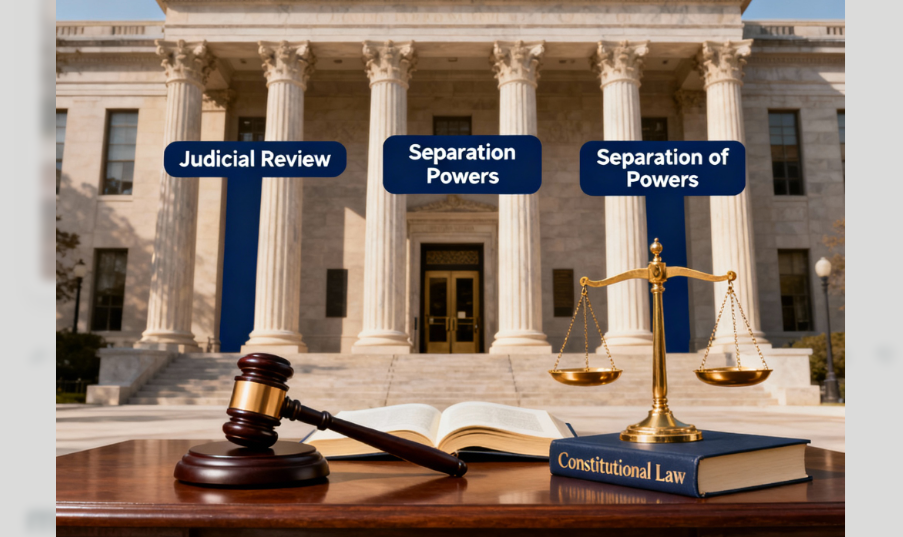Published On: September 8th 2025
Authored By: Akash Pydi
VIT-AP University
Abstract
Insider trading is a financial crime which trades on company’s confidential information for an unfair gain over other investors. It is not only a financial crime but also breach of public trust towards company and the stock market. This article will explore the impact on the company once an allegation is proven, it shows how the company internally suffers because of one man’s greed, it critically analyses the legal frame work and loopholes that are becoming a challenge to SEBI. A detailed analysis of some landmark cases like Rakesh Agarwal which highlights the necessity of Mens Rea has been discussed in this article.
Introduction
Stock market plays a significant role in our economy; it is a financial market for the people who want to purchase and sell the securities. It was regulated by Securities and Exchange Board of India (SEBI).
Imagine a company had decided to merge with another company as a part of their expansion strategy and suddenly an allegation made on the company by SEBI that one of its board of directors had shared the unpublished information to an outsider and giving the scope to outsider to gain unfair advantage. This type of scenario can be considered as insider trading. This insider trading will shows a large impact on company’s performance and the trust of investors have in the stock market. It will remain as a black mark on the company1.
We can see in the case of Ramalinga Raju, who was the owner of Satyam computers Ltd had published false accounting statements to increase the price of the stock and to attract the retail investors. When share price got increased, he made profits by selling the shares which misled the retail investors. This case had ruined the trust of the retail investors on the stock market.
I want to address an issue that whether a person is punishable under insider trading regardless of their intent. Think about a person who was holding board of director position in the company, he casually shares the information regarding merging to his friend which is unpublished when they met for lunch. Using this tip, the outsider had purchased huge amount of stocks before it was publicly announced to gain advantage over other investors. Regardless of the intent the director of the company made liable.
The Concept
Under section 2(1)g and 2(1)n of securities and Exchange Board of India (Prohibition of Insider trading) Regulations Act, 2015, the term “insider trading” refers to the insider who is connected person or having access to UPSI (Unpublished Price Sensitive Information) had given tip to an outsider and giving him scope to gain unfair advantage over other investors2.
It can be treated as a punishable offence. Even the company has to face legal hurdles and penalties if there is negligence of the company.
Not only criminal offence insider trading is also considered as ethically wrong because there is breach of trust and responsibility that an employee owes towards company. The board of directors and employees should owe some fiduciary duty i.e. they have to work for the company with complete fairness and transparency. While tipping the company’s confidential information for personal gain will come under breach of fiduciary duty and trust.
The Insider trading can be classified into two types one is legal insider trading and another one is Illegal insider trading. Legal Insider trading refers to the insiders can perform the trading activities by reporting the transactions to SEBI. It should be done within the internal code of conduct and shouldn’t be done based on the UPSI (Unpublished Price Sensitive Information).
There was always a conflict between the market integrity and Individual advantage. The Market integrity demands equal access of information to all investors for making of better investment decision, most of the investors will likely to invest in a company which is having transparency and fairness in the system. While the Insiders will think about their own advantage by using their insights and experience. So, there will be conflict between Market integrity and individual advantage.
Legal Framework
There are several laws that are governing insider trading in India like SEBI Act, 1992, The companies Act, 2013 and SEBI regulations, 2015 which prescribe the rules of prohibition of insider trading in India.
Under section 11(1) of SEBI Act, 1992. It is the duty of the board to protect the interest of the investors and take measures to promote and develop the securities market. The SEBI will be having some powers to direct the companies and innvestors. Usually, the courts will impose the punishment after the act but under the section 11B of SEBI Act, 1992 the board will take preventive steps before the damage happens. Its main objective is to protect the interest of the investors and to save the market integrity3.
While SEBI had introduced PIT regulations in 2015 by making the provisions stricter than 1992 Act regarding insider trading. According to the provisions of this regulation companies are mandated to adapt code of code for prevention of insider trading and to maintain a structured database containing information about the people who are having access to UPSI information.
SEBI will be having some administrative powers like conducting investigations and imposing penalties based on the gravity of the violation. For conducting investigation, the board should take warrant from the magistrate to search the company premises and during the investigation
the board has access to all company records and documents. For getting warrant from the magistrate there is a requirement to show the suspicious reports or transactions to the Hon’ble Magistrate.
Corporate Consequences of Insider Trading
The company or the industry has to face a lot of consequences once a financial crime is proven. There is a heavy reputational damage which is irrecoverable and the stock will loses its valuation. For example, A stock which is valued at ₹200 once the insider trading is proven in the investigation done by SEBI the stock my fall to ₹100 or ₹80. Even an allegation had a greater power to make the stock unstable and price fluctuation. In 2019, An allegation was made on Infosys by SEBI on the basis of suspicious transactions that are reported before the announcement of Infosys quarterly results. Even though the investigation is going on most of the retail shareholders panicked and started selling their holdings. This leads to a drop and price fluctuation in the Infosys stock. Once an allegation was made on a company regarding a financial crime, most of the investors will get panic and sell their holdings due to fear of loss.
The company will lose their investors trust and it affect market capitalization of the company. The board of directors who is considered as top management starts resigning their positions. The management has to face civil and criminal suits. It hurts the company’s ability to raise capital in future and penalty will be imposed if there is any negligence proven in internal code of conduct. There is a loss of experienced leadership.
Because of one insider the company will shift from boardroom to Bankruptcy. Preventive Oversight
To catch a thief or culprit some surveillance system is needed for police to track them likewise SEBI will use market surveillance to find out the people who are involved in insider trading not only for the purpose of investigation this surveillance is used as safeguard the retail investors and inspect the companies, industries, mediators trading activities. The main functions of this market surveillance is to monitor the surveillance cells whether they are working as per the norms that are established by board. The board has right to conduct preliminary enquiry if any found suspicious in trading activities4.
Imagine a crime happened in a place, the police will initiate the investigation to find the accused and taking the accused into custody on the basis of evidence. Interrogating the accused to find the motive of the offence and presenting the offender in the trail court. In same way When a suspicious trading activity is reported the board will initiate investigation to prove the offence, if the offence got proven the respective entities or parties will receive the show cause notice from SEBI by giving a chance to parties to defend themselves under the principle of natural justice. Then the adjudicating officer who is considered as a legal expert appointed by SEBI will analyse the evidence, application of law and determining the guilt. If the entity or party is not satisfied with the SEBI’s order, they are having right to file an appeal at Securities appellate tribunal (SAT).
The insider trading can be treated as both civil and criminal. The civil liability deals with the minor violations and the traders are punished with penalties and banning from market for a certain period of time. For proving civil liability circumstantial evidence is sufficient there is no necessity for strong and direct evidence. While the criminal liability deals with the serious and repeated crime. There is a need of strong and direct evidence for criminal liability because if a criminal liability is proven the trader will be sent to jail and heavy penalty will be imposed.
Case Law
In insider trading there are some landmark judgements which acts as precedents for future cases. In the case of Rakesh Agarwal V. SEBI5, The board has imposed a penalty on Rakesh for performing trade while in the possession of UPSI and argued that trade was happened on confidential information. This case highlights the importance of Mens Rea in civil liability cases. Usually in civil cases proving of intent and strong evidence is not necessary but this case highlights the necessity of Mens Rea in insider trading under Indian law. In this case Rakesh sold the shares to uphold the deal and in the interest of ABS Industries, there is no personal gain in this trading activity he just wants to make the acquisition succeed as a board of director of ABS Industries.
The Securities Appellate Tribunal ruled in favour of Mr. Rakesh Agarwal that trade has been performed in the best interest of the company and to make the acquisition succeed. It has been noted that there is no personal gain from it.
In the circle off insider trading there are two elements which will often collide with each other, one is possession of the UPSI and the person or investor intent. Usually, SEBI will only consider possession in most of the cases but there is a need of consideration of intent before taking action against an investor or a person because as we saw in this case of Rakesh Agarwal V. SEBI even though there is no intent of personal gain penalty has been imposed by SEBI.
Escape ways for Insiders
Although rules are imposed still there are some loopholes which are helpful for some violators to escape from the punishment. An insider trading is not only financial crime it is destroying an average investor trust on the stock market. In SEBI 2015 regulations the rules have been tighten. It is getting difficult for the board to prove a person is under the possession of UPSI and it has become a biggest challenge for SEBI to eradicate this insider trading. The board has launched a regulation in 2019 that a person who had reported the insider trading to the board will to be protected and their identity will not be revealed under any circumstances. Even though it is a good regulation its implementation is questionable6.
Conclusion
It is concluded that insider trading is not only a financial crime but also breach of public trust. It is necessary to introduce several reforms in the process of investigation by SEBI like taking of trader’s intent into consideration along with their possession of UPSI for civil or quasi judicial liability. So, it will reduce burden to Securities Appellate tribunal. Not only the investor the company will also affect a lot once insider trading is proven. The company’s reputation will be damaged; it will lose its credibility in the market. Because of one person the company will come from boardroom to bankruptcy. So, it is not a small crime as we seen in the books. The board should reconsider its decision while taking an action because a small allegation has power to damage the company’s reputation and their investors trust. These insiders not only violating legal boundaries but also fiduciary duty towards the organisation.
References
1. Rao, P. & Raju, S., Insider Trading an Unethical Practice: With Special Reference to Indian Securities Market (n.d.), NLUA Law & Policy Review, Vol. 7, https://nluassam.ac.in/docs/Journals/NLUALPR/Volume-7/Article-5.
2. Banthia, M., Critical Issues under SEBI PIT Regulations (n.d.), Institute of Company Secretaries of India, available at: https://www.icsi.edu/media/filer_public/0c/db/0cdb7f05-03f9-4969-85cefa91234c6bed/critical_issues_in_sebi_pit_regulations-cs_manoj_banthia.
3. Securities and Exchange Board of India Act 1992 [as amended by the Securities Laws (Amendment) Act 2014] (n.d.) SEBI, available at: https://www.sebi.gov.in/sebi_data/attachdocs/1456380272563.
4. Investigation, Enforcement and Surveillance’ (Securities and Exchange Board of India) https://www.sebi.gov.in/sebi_data/commondocs/ar99002f_h.html accessed 21 July 2025.
5. LawBhoomi, ‘Rakesh Agrawal vs SEBI’ (LawBhoomi, 19 February 2025) https://lawbhoomi.com/rakesh-agrawal-vs-sebi/ accessed 21 July 2025.
6. Investigation, Enforcement and Surveillance’ (Securities and Exchange Board of India) https://www.sebi.gov.in/sebi_data/commondocs/ar99002f_h.html accessed 21 July 2025




